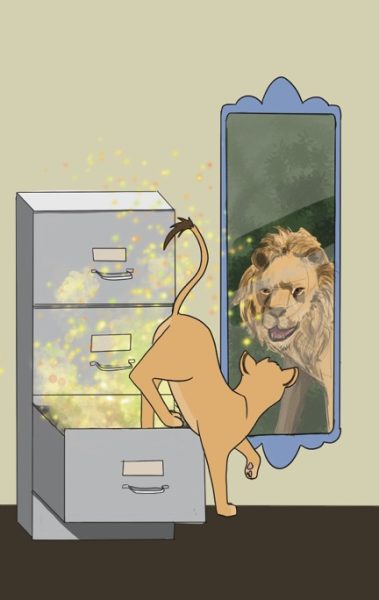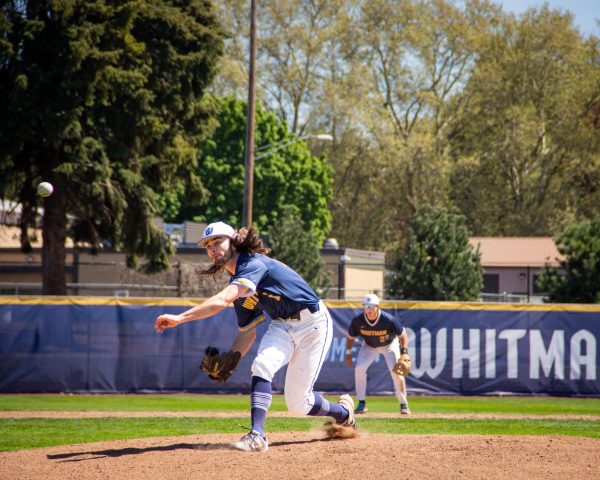Context for the Conversation
November 9, 2017
Every Friday at noon you can find students gathered in the Glover Alston Center (the GAC) to engage in discussion that addresses diversity, equity and inclusion in the Whitman Community as part of a program called Continuing the Conversation. The format is casual; whoever wants lunch can grab a plate and food and head to the living room for the presentation and group discussion.
Presentation topics vary widely, but are always related in some way to equity, diversity and inclusion. This past Friday, Penrose librarians Ben Murphy and Amy Blau raised questions about fake news, changing media, access to trustworthy information and the role money plays in media and reporting. There was also conversation about differences in each person’s social media feeds, online algorithms that might be driving political polarization and pros and cons of the democratization of news.
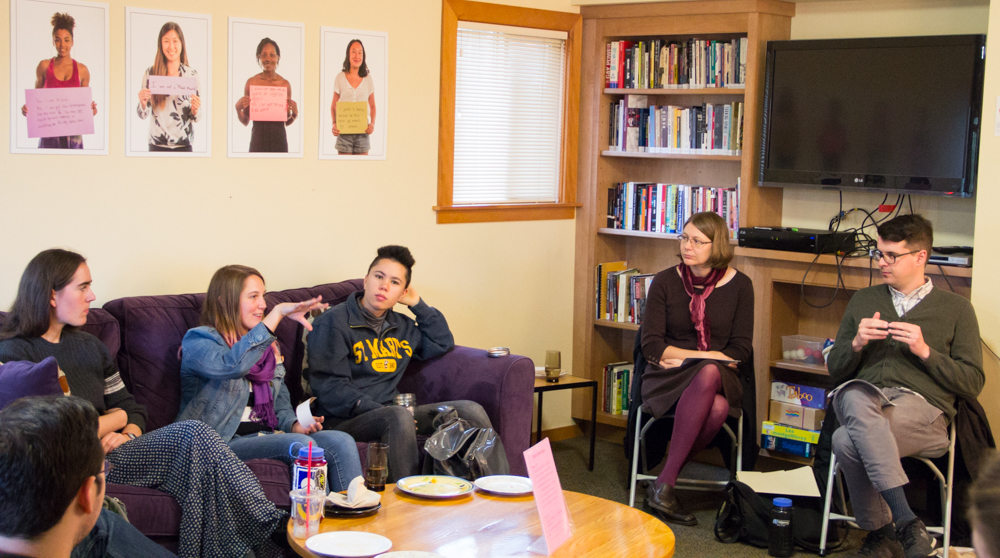
Other presentation topics in the past have included youth homelessness in Walla Walla and free speech in an academic setting. Presenters generally provide background information on a topic and then the floor is opened for a group discussion. It is an outlet for students to engage in discussion about current and diverse issues without doing any prior readings, and to hear the viewpoints of their peers. This event originally emerged as a way to continue the conversations that were happening at the Power and Privilege Symposium.
This February will mark the sixth annual Power and Privilege Symposium. Since 2014, classes at Whitman have been cancelled one day each school year so that faculty, staff and students can spend the day attending sessions that highlighted social justice issues. Previously, the symposium was two days of student-led and student-organized events to shed light on problems faced by marginalized groups on campus. In 2013, as a first-year student, Shireen Nori was part of the group of students who pushed the faculty to support this event by cancelling classes. Throughout her next four years at Whitman, Nori was instrumental in establishing the Power and Privilege Symposium we have today. Since then, the event has become a hallmark of Whitman life.
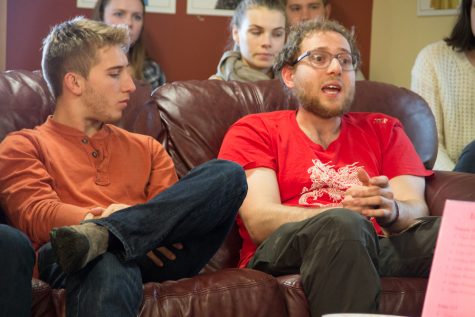
After the symposium in February of 2016, Nori remarked, “I hope that the conversations and the content of the symposium extend beyond this one day. There are some important and groundbreaking discussions that have happened at PPS and it is incredibly important that as a community, we don’t stop there.”
This is why Continuing the Conversation began. In the spring semester of 2016 Adam Kirtley—the Assistant Director of the Intercultural Center—started the weekly program called Continuing the Conversation. “On the outset of the program, I thought that it was vital for the event to happen every week and I wanted to feed people lunch. I joked that it’s not bribery, it’s hospitality,” Kirtley said. Since then, students have been offered free lunch when they attend a discussion. Generally, between 20 and 30 people attend Continuing the Conversation each week.
Initially, Adam Kirtley had planned on lifting most of the presentations directly from the Power and Privilege Symposium. There were 80 panels and workshops offered throughout the day at the Power and Privilege Symposium, but each person who attended the symposium was only able to sit in on five of these.
Kirtley noticed that “people were having productive conversations after the Power and Privilege Symposium, and Continuing the Conversation emerged as a way to encourage students to carve out time for these conversations each week.” Continuing the Conversation also gave people who presented at the Power and Privilege Symposium the chance to address a new audience and engaged students in a setting conducive to effecting change.
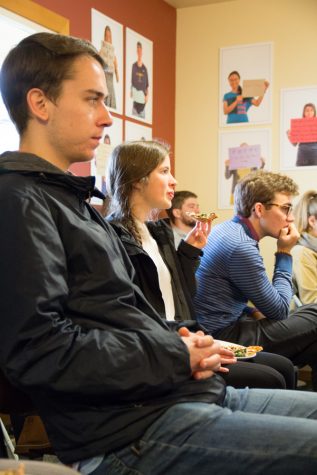
Currently, only about 10 percent of the presentations come from the Power and Privilege Symposium. At this point, half of presenters seek out Kirtley hoping for the chance to be able to present. Usually, presenters are Whitman students, staff, faculty or Walla Walla community members. The schedule for Continuing the Conversation is intentionally not completely booked so that people who what to facilitate a conversation about current events can do so.
Walter Tunnell Wilson is a sophomore who has been attending Continuing the Conversation sessions this school year. “The series provides a good chance to learn outside of the classroom. This year we’ve talked about a wide breadth of interesting topics. It’s pretty great, and so is the food,” said Wilson
A challenge that Continuing the Conversation faces is encouraging Whitties who have never attended to do so. “Overall, we are pleased with the turnout at Continuing the Conversation. Ideally, I would like to see more people choosing to step outside their comfort zones and coming because they want to learn about unfamiliar subjects. These are the people who might benefit the most from these conversations,” Kirtley said.





